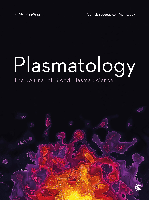
Plasmatology
Scope & Guideline
Pioneering Discoveries in Hematological Advancements
Introduction
Aims and Scopes
- Biochemical Characterization:
Research focused on the biochemical properties and functional characteristics of plasma components, including growth factors, anticoagulants, and other proteins. - Clinical Applications:
Studies addressing the clinical use of plasma products in treating various conditions, including hematological diseases, immune disorders, and complications arising from treatments. - Innovative Therapeutic Strategies:
Exploration of new therapeutic approaches utilizing plasma, such as CRISPR technologies, plasma exchange techniques, and novel purification processes. - Public Health and Policy Insights:
Research evaluating the implications of plasma management in healthcare settings, including blood product utilization, health equity, and access to therapies. - Case Studies and Retrospective Analyses:
Detailed examinations of specific clinical cases or retrospective studies that provide insights into the effectiveness and challenges associated with plasma therapies.
Trending and Emerging
- Genetic and Molecular Approaches:
An increasing focus on genetic analysis and molecular mechanisms, such as CRISPR and other gene-editing technologies, showcases the integration of cutting-edge science into plasma therapy. - COVID-19 Related Research:
A significant rise in studies related to COVID-19, particularly the therapeutic use of convalescent plasma and vaccine-related antibody responses, reflects the pandemic's influence on plasma research. - Patient-Centric Studies:
A trend towards research that emphasizes patient outcomes, quality of life, and health equity indicates a growing recognition of the importance of patient perspectives in plasma-related therapies. - Interventional Studies:
There is a notable increase in clinical trials and interventional studies assessing the efficacy of plasma therapies for various diseases, highlighting a shift towards evidence-based practice in plasma medicine. - Public Health and Resource Management:
Emerging themes around the management of plasma resources, including ethical considerations and policy implications, suggest a growing emphasis on the systemic aspects of plasma utilization in healthcare.
Declining or Waning
- Historical Case Reports:
There has been a noticeable decrease in the publication of traditional case reports, as the journal appears to be focusing more on innovative research and broader clinical implications rather than isolated clinical narratives. - Basic Science Studies:
Research that delves into the fundamental science of plasma components without direct clinical application seems to be waning, possibly due to a preference for studies that bridge the gap between bench and bedside. - Exploratory Studies on Rare Conditions:
Investigations into less common plasma-related conditions or niche therapeutic applications are becoming less frequent, indicating a potential shift towards more prevalent clinical issues.
Similar Journals
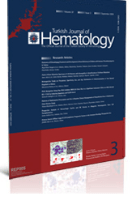
Turkish Journal of Hematology
Fostering collaboration in hematology research and clinical practice.Turkish Journal of Hematology is an esteemed publication dedicated to advancing the field of hematology, producing influential research since its inception in 1999 under the auspices of GALENOS PUBL HOUSE. With an Open Access model, it facilitates widespread dissemination of knowledge, allowing researchers, clinicians, and students to stay abreast of the latest developments in blood disorders and treatments. With an ISSN of 1300-7777 and an E-ISSN of 1308-5263, the journal holds a commendable position in the academic community, evidenced by its 2023 Q3 ranking within the hematology category and its standing at #80 out of 137 in the Scopus database, placing it in the 41st percentile. Covering a wide scope of topics within hematology, this journal serves as a critical resource for disseminating innovative research and clinical practices pertinent to the ongoing challenges faced in this vital area of medicine. With its continuous publication until 2024, Turkish Journal of Hematology remains a beacon for enhancing the understanding and treatment of hematological conditions within the Turkish and global medical communities.

PHYSICS OF PLASMAS
Illuminating the Interdisciplinary World of PlasmasPhysics of Plasmas is a premier peer-reviewed journal published by AIP Publishing, focusing on the vital and interdisciplinary field of plasma physics. With an ISSN of 1070-664X, this journal presents cutting-edge research that spans a wide array of topics including fusion energy, astrophysical plasmas, and industrial applications of plasma technologies. As a recognized leader in the field, it holds a prestigious Q1 ranking in Condensed Matter Physics, reflecting its high impact and quality of published work. The journal's scope encompasses both fundamental studies and innovative applications, serving as an essential resource for researchers, professionals, and students alike. Although it does not offer open access, its rigorous selection process ensures that only the most significant contributions are highlighted. With a convergence of expertise from 1994 to 2024, Physics of Plasmas continually shapes the future of plasma research and technology, making it a critical avenue for sharing discoveries and advancements in this dynamic area of physics.

Experimental Hematology & Oncology
Driving Progress in Blood Health and Cancer SolutionsExperimental Hematology & Oncology is a premier journal published by BMC, dedicated to advancing knowledge in the fields of hematology, oncology, and cancer research. Since its inception in 2012, this Open Access journal has emerged as a vital resource for researchers and healthcare professionals, fostering the dissemination of high-quality research that enhances our understanding of blood disorders and malignancies. With impressive rankings in Quarters 1 of key categories including Cancer Research, Hematology, and Oncology, it holds significant prestige, evidenced by its Scopus rankings: #42/404 in Medicine (Oncology) and #17/137 in Medicine (Hematology). The journal aims to publish cutting-edge studies, reviews, and perspectives that contribute to the evolution of therapeutic strategies and innovative treatment modalities. Researchers and practitioners alike will find this journal indispensable for staying at the forefront of breakthroughs in hematological and oncological research.
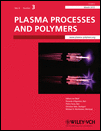
Plasma Processes and Polymers
Exploring the Intersection of Plasma Processes and Polymer ApplicationsPlasma Processes and Polymers is a leading peer-reviewed journal published by WILEY-V C H VERLAG GMBH, focusing on the innovative field of plasma science and polymer technology since its inception in 2004. With an ISSN of 1612-8850 and an E-ISSN of 1612-8869, this journal has established its reputation within the scientific community, holding a commendable Q2 ranking in both Condensed Matter Physics and Polymers and Plastics for 2023. Recognized for its rigorous standards and impactful contributions to the field, it ranks in the top 20% of the Physics and Astronomy category and top 26% of the Materials Science category, as per Scopus metrics. Catering to researchers, professionals, and students alike, the journal publishes cutting-edge articles that advance understanding and application of plasma processes in polymer science, thereby bridging theoretical insights with practical implications. While currently not offering open access, it provides a critical platform for advancing knowledge and fostering innovation, making it essential reading for those at the forefront of polymer research and applications.

Turkish Journal of Plastic Surgery
Fostering Innovation in the Dynamic Field of Plastic SurgeryTurkish Journal of Plastic Surgery, published by WOLTERS KLUWER MEDKNOW PUBLICATIONS, serves as a pivotal platform for the dissemination of innovative research and clinical findings within the dynamic field of plastic surgery. With an ISSN of 1300-6878 and an E-ISSN of 2528-8644, this Open Access journal has been committed to making high-quality research accessible since 2018, fostering a broader reach and engagement among healthcare professionals, researchers, and students alike. Although its Scopus coverage has been discontinued since 2015, the journal maintains relevance via its niche in Medicine - Surgery, where it ranks 337 out of 422, placing it in the 20th percentile. Addressing a spectrum of topics from reconstructive techniques to aesthetic advancements, the Turkish Journal of Plastic Surgery not only contributes to the academic body of knowledge but also provides practical insights for clinical practices, thereby enhancing patient outcomes in the realm of plastic surgery.
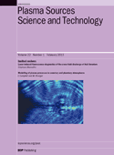
PLASMA SOURCES SCIENCE & TECHNOLOGY
Leading Research in Plasma Sources for Tomorrow's Technologies.PLASMA SOURCES SCIENCE & TECHNOLOGY is a premier academic journal published by IOP Publishing Ltd, focusing on the innovative field of plasma science and its applications in technology. Established in 1992, the journal has significantly contributed to advancing knowledge in this crucial area, maintaining a robust Q1 quartile ranking in Condensed Matter Physics as of 2023, which reflects its high-impact research dissemination. With an impressive Scopus ranking of 74 out of 434 in the field of Physics and Astronomy—specifically within Condensed Matter Physics—this journal stands out as a leading source for researchers and professionals dedicated to the study and application of plasma technologies. While it is not an Open Access journal, the published works are accessible through institutional subscriptions, making them available to a wide academic audience. The journal aims to provide a platform for significant contributions related to plasma physics, fostering scientific dialogue and collaboration across various disciplines. As it continues through its converged years up to 2024, PLASMA SOURCES SCIENCE & TECHNOLOGY remains essential for anyone involved in the burgeoning exploration of plasma-related scientific advancements.
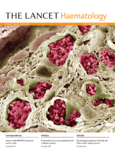
Lancet Haematology
Bridging clinical practice and pioneering research.Lancet Haematology, published by Elsevier Science Ltd in the United Kingdom, is a premier peer-reviewed journal dedicated to advancing the field of hematology. With an impressive impact factor and listed in the Q1 category in hematology for 2023, this journal ranks #4 out of 137 in the Scopus database, boasting a 97th percentile indicating its influential role in disseminating high-quality research. Since its establishment in 2014, Lancet Haematology has provided a vital platform for researchers and clinicians to share groundbreaking studies, innovative treatment approaches, and novel therapeutic discoveries relevant to various hematological disorders. The journal does not operate under an open access model, but it offers multiple access options to facilitate engagement with its content. By bridging clinical practice and cutting-edge research, Lancet Haematology aims to foster the advancement of knowledge and improve patient outcomes in hematology, making it an essential read for professionals, researchers, and students alike.
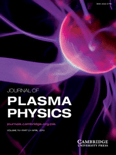
JOURNAL OF PLASMA PHYSICS
Transforming ideas into groundbreaking plasma research.Welcome to the JOURNAL OF PLASMA PHYSICS, a premier publication dedicated to advancing understanding and research in the field of plasma physics. Published by Cambridge University Press, this journal has been a pivotal resource since its inception in 1967, supporting scholars and professionals engaged in the innovative exploration of plasma phenomena. With an impressive Q1 rating in Condensed Matter Physics, the journal not only holds a significant position in the academic community but also ranks within the top 50th percentile in the Scopus database. Although it currently does not offer open access, the journal provides a wealth of valuable research contributions aimed at fostering knowledge and collaboration among researchers, professionals, and students alike. The Journal of Plasma Physics is committed to publishing high-quality articles that push the boundaries of knowledge, ensuring its vital role in the ever-evolving landscape of physics research.

Journal of Blood Medicine
Unlocking Potential: Transforming Knowledge into Practice in Blood MedicineThe Journal of Blood Medicine, published by DOVE MEDICAL PRESS LTD, stands as a vital resource in the field of hematology, focusing on the latest research developments and clinical advancements in blood medicine. With an impact factor reflective of its growing relevance, this open-access journal has been delivering quality scholarly work since 2010, ensuring that critical research is readily available to the global scientific community. The journal operates under an open-access model, further enhancing its dissemination and accessibility to researchers, professionals, and students alike. In the 2023 rankings, it secured a Q3 category status within hematology and achieved a commendable 76th rank out of 137 in Scopus listings, indicating its commitment to quality and innovation in this specialized area. Located in New Zealand, the journal's diverse topics encompass clinical research, treatment modalities, and emerging therapies, contributing significant insights vital for shaping future advancements in blood medicine.

Mediterranean Journal of Hematology and Infectious Diseases
Fostering innovation in medical research for a healthier tomorrow.Mediterranean Journal of Hematology and Infectious Diseases is a distinguished open access journal published by MATTIOLI 1885, dedicated to advancing the field of hematology and infectious diseases. Since its inception in 2009, the journal has provided a platform for researchers and practitioners to disseminate innovative findings, foster scholarly discourse, and enhance our understanding of these critical medical disciplines. With an impact factor reflecting its scholarly influence, it is recognized in the Q3 quartile for both Hematology and Infectious Diseases categories as of 2023. The journal's commitment to open access ensures that high-quality research is accessible to a global audience, contributing to the improvement of clinical practices and public health. Located in Fidenza, Italy, the journal continues to support converged research efforts from 2010 to 2024, making it an essential resource for academics, clinicians, and students in the medical community.